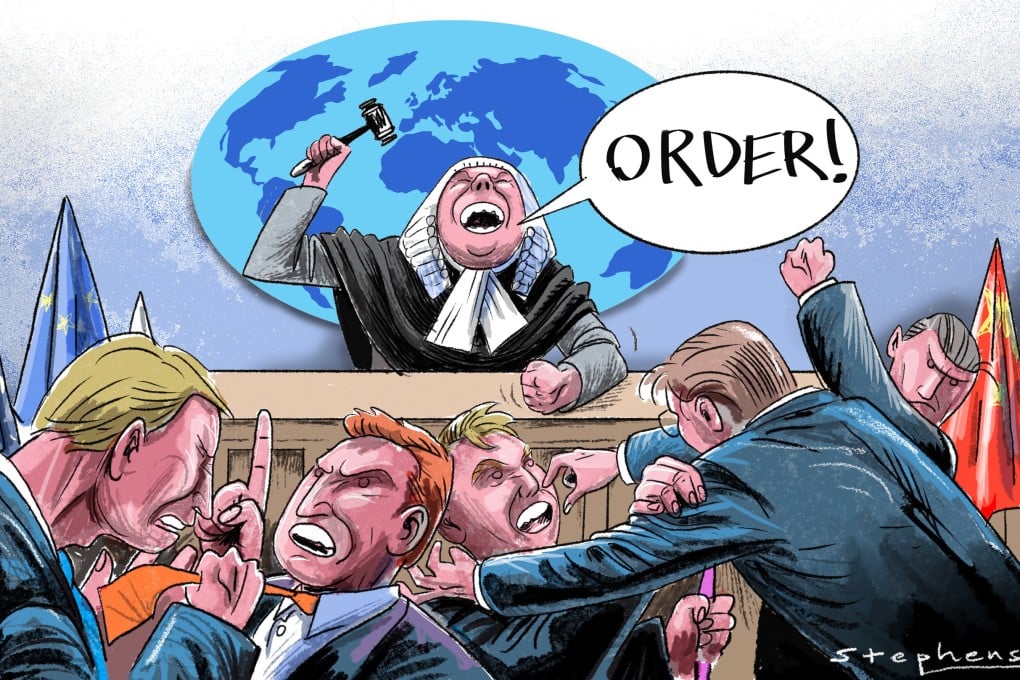Advertisement
Opinion | The rules-based order isn’t working. It’s time for an alternative
- A clear guiding principle can help countries overcome different priorities and diverging ideas about global governance
Reading Time:4 minutes
Why you can trust SCMP
11

Supporters of the rules-based order have had a busy month. From the Shangri-la Dialogue to the Ukraine peace summit in Switzerland, multiple global leaders have called for efforts to defend and preserve it.
Advertisement
But amid these outcries for order, there is no true order but chaos. The problem became noticeable as early as 2003, when the United States tried to justify its invasion of Iraq. It was amplified by Russia’s invasion of Ukraine and Israel’s brutal war in Palestine.
The rules-based order has never been perfect. Conflicts involving less developed countries away from geopolitical hotspots tend to get overlooked by rules enforcers, while the enforcers themselves tend to break the rules from time to time. At the Shangri-la Dialogue, the European Union foreign policy chief Josep Borrell emphasised that preserving the rules-based order requires there to be no double standards.
Yet double standards have persisted. This shows that the rules-based order is not just imperfect but fundamentally flawed. Countries such as China have called for “an international order based on international law”, based on the view that the Western framing of the rules-based order goes against the spirit of the rule of law by embodying unilateralism and power politics rather than multilateralism and democratic justice.
Australian defence minister Richard Marles, in his speech at the Shangri-la Dialogue, had noted that the global rules-based order is not just a “Western project”, with thinkers from across the Global South, including China, India and countries in Africa, being central to its formation.
Advertisement
Yet in the aftermath of World War II when this rules-based order was forged, many areas of the Global South were colonised and largely illiterate. Their representation was deeply compromised.

Advertisement

